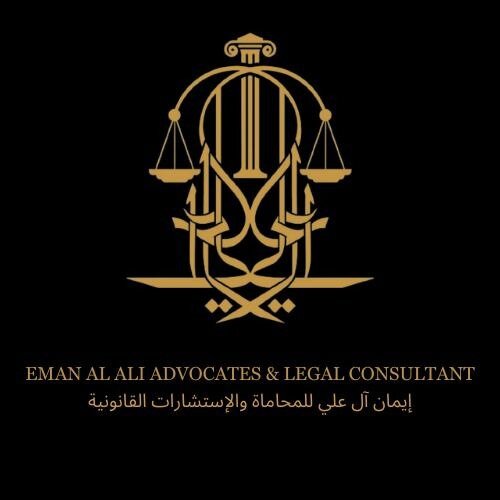Best Brokerage Lawyers in United Arab Emirates
Share your needs with us, get contacted by law firms.
Free. Takes 2 min.
Free Guide to Hiring a Real Estate Lawyer
Or refine your search by selecting a city:
List of the best lawyers in United Arab Emirates
About Brokerage Law in United Arab Emirates
Brokerage in the United Arab Emirates (UAE) involves mediation between contracting parties to facilitate transactions in various sectors including real estate, finance, and commodities. The UAE brokerage industry is primarily governed by federal laws and regulations issued by various regulatory bodies such as the Securities and Commodities Authority (SCA) and the Dubai Financial Services Authority (DFSA). These laws are designed to ensure transparency, integrity, and fair dealing in the brokerage sector. Understanding these laws is crucial for professionals and investors participating in this dynamic market.
Why You May Need a Lawyer
Seeking legal advice in the field of brokerage may become indispensable in several scenarios:
- Contract Disputes: Brokerage transactions often involve complex agreements. Legal assistance can be critical in resolving disputes over contract terms or breaches.
- Regulatory Compliance: Navigating the intricate web of local and federal regulations can be challenging. A lawyer can help ensure you comply with all necessary legal and regulatory requirements.
- Licensing Issues: Obtaining and maintaining proper licensing is crucial for brokers and brokerage firms. Legal guidance can aid in navigating the licensing process or resolving any compliance issues.
- Fraud and Misrepresentation: If fraud or misrepresentation occurs during a transaction, legal action may be necessary to protect your interests.
- Liability and Risk Management: Lawyers can aid in assessing potential liabilities and advising on risk management strategies specific to brokerage activities.
Local Laws Overview
The legal framework governing brokerage in the UAE includes several essential components:
- Commercial Transactions Law: This law sets the foundation for all commercial sales, agency, and brokerage agreements in the UAE.
- Securities and Commodities Regulatory Framework: Overseen by the Securities and Commodities Authority (SCA), these regulations cover trading regulations, licensing of brokerage firms, and market conduct requirements.
- Real Estate Brokerage Law: In Dubai, for instance, real estate brokerage activities are regulated by laws such as RERA's (Real Estate Regulatory Agency) guidelines and regulations.
- Anti-Money Laundering (AML) Laws: Brokers must adhere to AML regulations to prevent illegal financial activities.
Frequently Asked Questions
What is the role of a broker in the UAE?
A broker acts as an intermediary between buyers and sellers, facilitating transactions in sectors such as real estate, financial services, and commodities trading. Their duties can include negotiating contract terms, advising clients, and ensuring compliance with relevant laws.
Do I need a license to operate as a broker in the UAE?
Yes, a license is required to operate legally as a broker in the UAE. The type of license depends on the specific industry, such as real estate or securities. Licensing requirements are governed by relevant regulatory authorities.
What regulatory bodies govern brokerage activities in the UAE?
The Securities and Commodities Authority (SCA) oversees securities and investment brokerage, while the Dubai Financial Services Authority (DFSA) regulates activities within Dubai’s financial free zone. Additionally, the Real Estate Regulatory Agency (RERA) governs real estate brokerage activities in Dubai.
How can I ensure compliance with UAE brokerage laws?
Compliance can be ensured by keeping abreast of relevant laws, maintaining necessary licenses, regular training for staff on legal and regulatory obligations, and consulting with legal professionals who specialize in UAE brokerage law.
What are the consequences of non-compliance with brokerage laws?
Non-compliance can result in penalties including fines, suspension or revocation of licenses, and possibly criminal charges, depending on the severity and nature of the breach.
What is involved in a brokerage contract in the UAE?
A brokerage contract outlines the broker’s duties, the commission structure, duration of the agreement, confidentiality clauses, and any other terms specific to the transaction. These contracts must comply with UAE commercial law.
How can a lawyer assist with brokerage disputes?
A lawyer can help navigate dispute resolution through negotiation, mediation, or litigation, ensuring that a client's rights and interests are protected according to UAE laws.
Is online brokerage allowed in the UAE?
Yes, online brokerage for securities and commodities is permitted in the UAE, provided the broker is licensed and complies with regulatory requirements set by authorities such as the SCA and DFSA.
What measures are in place to protect against fraud in brokerage activities?
UAE laws impose stringent compliance requirements, including Anti-Money Laundering (AML) regulations, to prevent fraud. Regular audits, transparency obligations, and regulatory oversight help mitigate fraud risks.
Can foreign nationals work as brokers in the UAE?
Foreign nationals can work as brokers in the UAE but must obtain the appropriate work visas and licenses, and often must partner with or be sponsored by a local company, depending on the sector.
Additional Resources
For additional support and information, the following resources may be useful:
- Securities and Commodities Authority (SCA): For guidance on securities regulations and licensing requirements.
- Dubai Financial Services Authority (DFSA): Regulates financial services conducted in the Dubai International Financial Centre (DIFC).
- Real Estate Regulatory Agency (RERA): Offers resources and regulations related to real estate transactions in Dubai.
- Legal Consultancies: Professional firms and lawyers who specialize in brokerage and commercial law in the UAE.
Next Steps
If you find yourself needing legal assistance in brokerage matters, consider taking these steps:
- Consult a Legal Expert: Engage with a lawyer experienced in UAE brokerage and commercial law to understand your rights and obligations.
- Review Legal Documentation: Ensure all brokerage contracts and agreements are reviewed by a legal professional to identify potential issues.
- Stay Informed: Keep up-to-date with the latest laws and regulations applicable to your area of brokerage to ensure ongoing compliance.
- Prepare for Dispute Resolution: Develop a strategy with your legal counsel to resolve any potential disputes amicably and effectively.
Lawzana helps you find the best lawyers and law firms in United Arab Emirates through a curated and pre-screened list of qualified legal professionals. Our platform offers rankings and detailed profiles of attorneys and law firms, allowing you to compare based on practice areas, including Brokerage, experience, and client feedback.
Each profile includes a description of the firm's areas of practice, client reviews, team members and partners, year of establishment, spoken languages, office locations, contact information, social media presence, and any published articles or resources. Most firms on our platform speak English and are experienced in both local and international legal matters.
Get a quote from top-rated law firms in United Arab Emirates — quickly, securely, and without unnecessary hassle.
Disclaimer:
The information provided on this page is for general informational purposes only and does not constitute legal advice. While we strive to ensure the accuracy and relevance of the content, legal information may change over time, and interpretations of the law can vary. You should always consult with a qualified legal professional for advice specific to your situation.
We disclaim all liability for actions taken or not taken based on the content of this page. If you believe any information is incorrect or outdated, please contact us, and we will review and update it where appropriate.
Browse brokerage law firms by city in United Arab Emirates
Refine your search by selecting a city.















